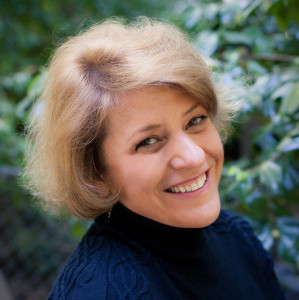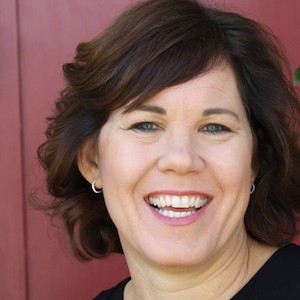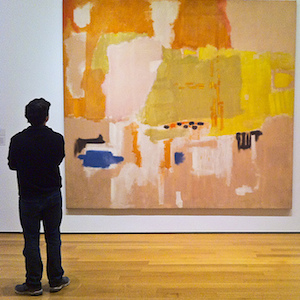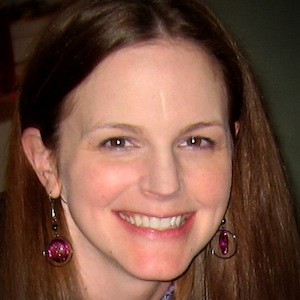Compose Q&A with Poet Randall Mann
Randall Mann is the author of two books of poetry, Breakfast with Thom Gunn and Complaint in the Garden. A new collection, Straight Razor, is forthcoming from Persea Books in October, 2013.
Compose: Your third book will be coming out shortly. Could you tell us a little about it?
Randall Mann: Hmm. Straight Razor delves into a damaged, imagined childhood, the truth, I hope, guarded and revealed in equal measure. It’s ambivalent about love and poetry, among other things. There is a poem that chronicles the dirty particulars of youth narrated in the voice of a cockroach. There is a sestina addressed to a poetry-reading audience that kills off the poetry-reading audience. I spent five years writing and revising the book.
C: What strikes you the most about those five years?
RM: How hard I worked on the poems—I don’t think writing gets easier for me as I get older—and yet how free I felt when I wrote them.
C: How did the poem in the voice of a cockroach happen?
RM: The poem started out as a kind of creepy childhood poem narrated in the voice of a pervy boy, but after I wrote the final lines, “I was your cockroach in Orlando, / the one who crawled on you at night,” and set it aside, I thought it might be better to suggest that the cockroach is doing the talking, so I changed the title—I can’t remember the old title—to “Cockroach.” Mark Doty published it in a feature in The Guardian.
(It’s the last poem on this page.)
C: For Straight Razor, did you set out to write about certain themes intentionally? Did you have a sense of what book you wanted to write?
RM: No, I just set out to write poems. My first book was “about” Florida, the second “about” San Francisco, and I saw these pseudo-abouts as the books took shape. Straight Razor resisted categorization, though I suppose it’s more “personal” than the last two. I’m not much of an idea guy, so often poems’ and books’ subjects reveal themselves to me in the thick of writing them, or even—as with, to a certain extent, Straight Razor—after I have put them together.
C: The cover image looks like a quill-feather, or a leaf, or the fluffy tail of an animal; it’s hard to say—certainly not the hard, metal image one might expect.
RM: I like the ambiguity of the image, its purity yet filth. It also looks pleasantly amateur, which, like amateur porn, has a certain determined charm.
C: You’ve said the following, in response to criticism of your open homosexuality: “If tenderness between two men is radical—and I suppose it is—then this shameful world needs a new radicalism.” Would tenderness between any two people always be radical as resistance against dehumanization?
RM: Perhaps, yes, and what makes it radical is the privacy of such tenderness, even for heterosexual couples, and not the public performance of tenderness, which is the new radicalism’s press release.
C: Your work has received a great deal of deserved attention. Ultimately, is some sort of outside validation part of why you started to write and continue to write?
RM: Not exactly. Early on, the encouragement of a very kind high school English teacher, whom I showed my poems, and then of my first college poetry teacher, Debora Greger, gave me permission, in a sense, to pursue writing. But I started writing before I even thought about showing work to anyone. And I kept writing when, for example, I sent out my first book to everyone, and I mean everyone, and it took six years for a publisher to say yes. I write; attention feels great, and then the feeling fades. I write.
C: In your poem “Gainesville, Florida,” which deals with your time as a student, you mention Donald Justice and Michael Hofmann, but you actually walk with Debora Greger.
RM: Debora was my first teacher, warm and open yet uncompromising. Though I never really studied with Justice, save for a workshop or two at a writers’ conference, his work is incredibly important to me (Justice helped me learn clarity, and the importance of absences, of leaving things out). And I cannot stress how much I have learned from the poems, prose, and translations of Michael: he’s brilliant; he writes as if he’ll drown if he doesn’t get the words down.
C: Looking back at your MFA experience, what do you make of it?
RM: I learned so much during my time (1995-97) at Florida. I’m incredibly grateful to all my teachers—Debora, Michael, William Logan, and Sidney Wade–all gifted writers and generous teachers. I was young; I was more than once cutthroat in workshop. I had a great time.
C: You’ve said, and this is a paraphrase, that the act of writing poetry happens in a closed room, followed by an opening of the door for the world to see the results. You seem to imply that at its core, writing poetry is a private act.
RM: That’s right: a private, intimate act.
C: Is the intimacy of the writing act the basis for the reader to later experience intimacy with the work? Or put another way, no intimacy for the poet, no intimacy for the reader?
RM: Well said. I think even some of the best public poems—ones by, say, Auden—have at their core a formal, syntactical privacy.
C: Is there a tension for you between the private act of writing and the very public act of sharing your work with the world?
RM: I don’t think there’s tension between writing and sharing; I think the “sharing” just means that I have deemed something worthy of the reader’s attention, that is, I’m not ashamed (or too ashamed) to let some possible reader in on what I’m doing. Like it or not, the poems are nothing without their readers.
C: Does the possible future reader play any part in your writing?
RM: Only indirectly. I try to be as succinct and clear as possible, to make formal choices that complement the content so that, once it makes sense to me, it might, at some future point, if and when a reader reads it, make sense to him or her.
C: What if a poet opens the door and nobody shows up?
RM: Almost no one shows up even if everyone shows up: it’s poetry.
You can follow Randall Mann on Twitter @randallmannpoet.







